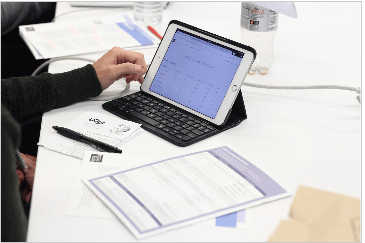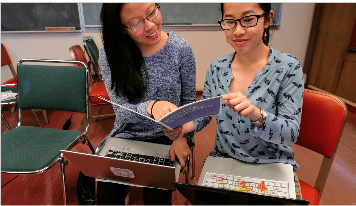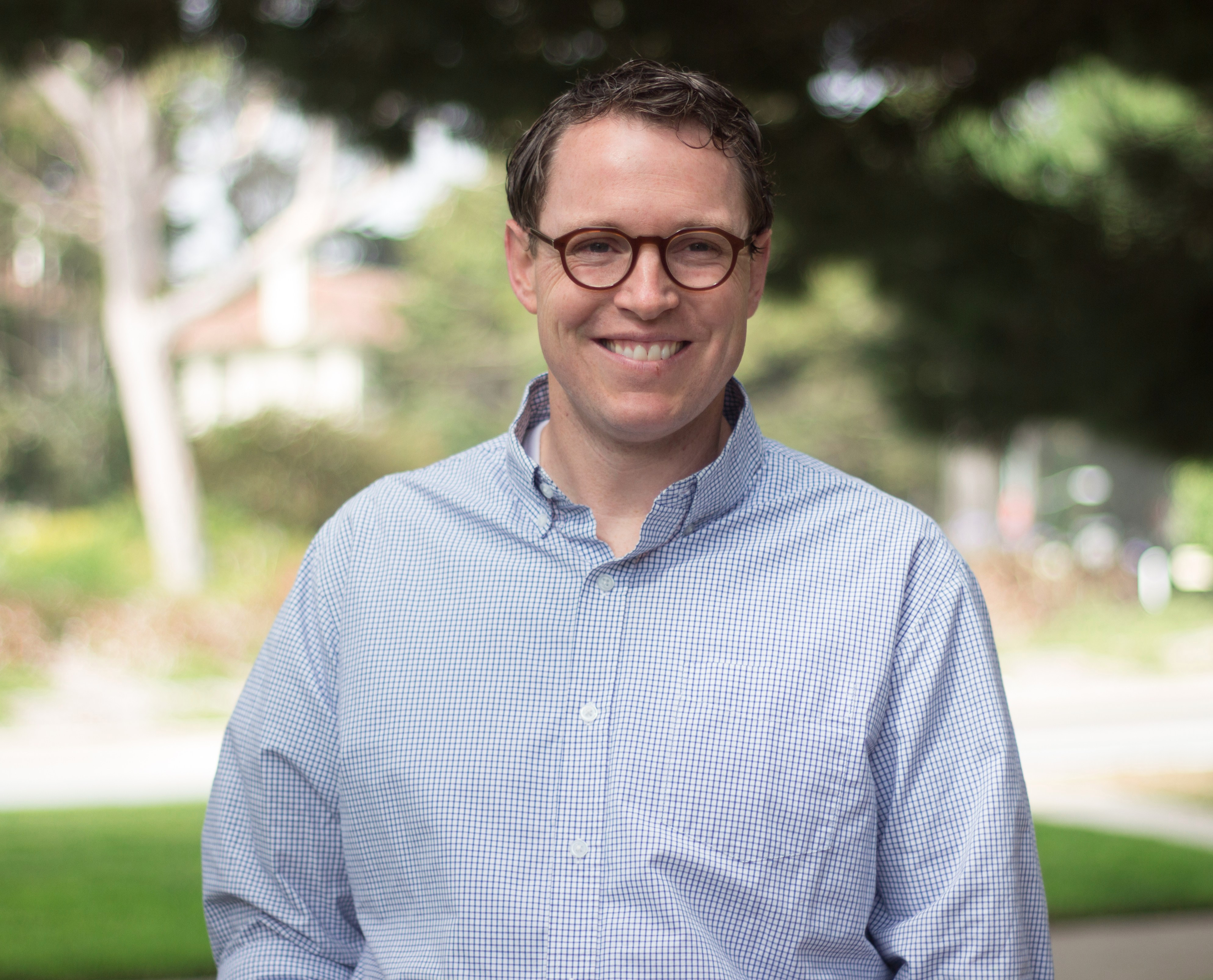Teaching with Wikipedia: A High Impact Open Educational Practice
Published by: WCET | 3/29/2018
Tags: Course Design, Digital Learning, Distance Education, Managing Digital Learning, Online Learning, Open Educational Resources
Published by: WCET | 3/29/2018
Tags: Course Design, Digital Learning, Distance Education, Managing Digital Learning, Online Learning, Open Educational Resources
This week’s Frontiers Blog is written by one of my OER heroes, Dr. TJ Bliss. Like so many others working to reduce costs and increase open access to education, I was inspired, mentored, and empowered by TJ. In his previous position as the OER Program Officer at the William and Flora Hewlett Foundation, TJ granted $45 million to over 30 organizations around the world actively working to advance the field of open education. Now, as the Director of Development and Strategy at Wiki Education, TJ invites higher education to contribute to and access open knowledge in the world’s largest encyclopedia. Read more about TJ Bliss and his inspiring work. Thank you to TJ for writing for WCET Frontiers.
We hope you enjoy today’s post!
– Tanya Spilovoy, Director, Open Policy, WCET
Wikipedia is arguably one of the most successfully crowd-sourced digital projects to date. By nature of its open-source and collaborative design, the knowledge represented on the site is consistently improved, built upon, and updated. While Wikipedia still suffers from systemic biases and content gaps, it’s designed to include the most voices possible in the articulation of its information. It is also designed to be accessible to as many people as possible, and there’s no doubt that it has tremendous reach: Almost 500 million unique users traffic the site every month.
Few readers of Wikipedia fully understand its mechanisms. Where does that information come from? Is it trustworthy? One might be aware that content on Wikipedia is written entirely by volunteers around the world. This fact inspires uncertainty or skepticism in many. If just anyone can change Wikipedia, won’t there be inaccuracies? Won’t people potentially abuse that power?
In the age of fake news, providing opportunities for people to learn how to identify misinformation online is increasingly important. And students are particularly vulnerable. Researchers at the Stanford Graduate School of Education published a report in 2016 that found that students have difficulty identifying credible sources online, distinguishing advertisements from news articles, and understanding where information they encounter comes from.
So how do we equip students with the skills they need to understand their ever-changing digital landscapes? We can use open educational practice to teach them how to evaluate and improve the informational resources that hundreds of millions of people rely on every day. In particular, we can teach them to edit Wikipedia articles as part of their regular coursework.

Supporting higher education instructors who teach with Wikipedia is Wiki Education‘s specialty. We offer free resources for instructors to do this, which take the form of instructional design consultation, assignment management software, tutorials about how to contribute to Wikipedia, and print resources about editing in particular disciplines. These tools all come together in our Dashboard, a free and open-source web application that we consistently improve. In fact, we’ve built a volunteer development community around that continual improvement, and we engage a number of newcomers in this tech development.
The Dashboard is where instructors create and manage their Wikipedia assignment using our templates. They’re able to refine the assignment to meet their needs and can closely track student progress as they contribute course content to Wikipedia articles. The Dashboard is also where students take tutorials about how to edit and track their work and that of their classmates. Since 2010, Wiki Education has supported more than 43,000 students at over 400 universities and colleges throughout North America. These students have improved or created 60,000 Wikipedia articles so far and have added 40.3 million words to the site.
The open educational practice of assigning students to edit Wikipedia teaches information literacy and engages students in new ways. They walk away with the ability to apply a critical lens to information they encounter outside of the classroom. Eighty-seven percent of instructors who taught with Wikipedia in the Fall 2017 term agree that a Wikipedia assignment is more effective in teaching information literacy than a traditional assignment.
When students edit Wikipedia, they engage in the technological mechanisms of an online resource they rely on (i.e. they learn how to edit and respond to Wikipedia’s community of fellow editors); they learn to distinguish primary and secondary sources in accordance with Wikipedia’s encyclopedic standards; they recognize the difference between encyclopedic and argumentative writing styles; and they understand how to identify where information comes from and whether or not it’s accurate.
One student who completed a Wikipedia assignment in Fall 2017 explained what they learned from the process:
“What I realize now is that Wikipedia is in a constant state of research and conversations are happening so things get updated to reflect that knowledge. That is not to say that things do not need to be checked, but it is always good when research is progressive. I really learned the ins and outs of editing and all the things that come with it. Another valuable thing I learned that I will use forever is how to assess an article. I had never done anything like this in a previous class, and I can say that I learned things that I will hold with me forever. It is so important that instead of just disregarding [Wikipedia] as a whole, we should be working on strengthening it.”
When students engage with Wikipedia in the classroom, they come to understand what knowledge is not adequately represented on the site. And they take an active role in the solution, becoming creators of knowledge, rather than merely consumers.
The public facing nature of a Wikipedia classroom assignment also carries a lot of weight for students. Participating in scholarship for mass consumption not only keeps students accountable, but inspires a sense of confidence in them, as well. Editing Wikipedia uniquely positions students as knowledge producers, inspiring them to have a real command over course material and an active approach to expressing what they’ve learned. Held accountable by their instructor, other students, other Wikipedia editors, and Wikipedia’s global readership, students are more motivated to produce high quality work. Students are also motivated by the autonomy that the assignment can inspire, and feel a personal investment in better representing a topic of their choice on the world’s most popular online encyclopedia.
Again, with the rise of fake news, engaging students in questions about knowledge production and dissemination is critical. Teaching information literacy is not only a beneficial academic experience, but a critical life skill. We want students to emerge from higher education more confident and better informed to participate as citizens.
Katie Webber, a Rice University student in our program, proposed editing Wikipedia as a civic duty:
“I call my senators, I vote, I donate to the ACLU, and now, I edit Wikipedia,” she wrote in a reflective blog post.

When students understand themselves as knowledge producers, they feel a responsibility to a learning community larger than the classroom. Wikipedia’s self-described purpose is to provide free access to the sum of human knowledge to the most people possible. People in higher education are beginning to recognize the importance of digital writing and public scholarship. York University, for example, recently awarded a prestigious faculty award to a student for the Wikipedia article he wrote about the digital divide in Canada.
“I learned and gained more from working with Wikipedia than I have from almost any other assignment I have completed,” the student reflected. “[I learned] how to interact with Wikipedia’s collaborative social network, adapt to a work environment that isn’t a traditional word processor, and practice a style of writing which isn’t common among university assignments. These are all things that I would not have experienced if I had been working on something more traditional, yet I believe having less traditional experiences like these is also an important part of growing academically.”
Jon Sufrin, coordinator of the faculty-wide competition at York, also spoke to the value of academic engagement with a medium like Wikipedia.
“It’s pretty clear that digital writing is going to be in demand in the future, and this kind of writing takes a specific set of skills to do well,” he said. “You have to be able to sort through all the available sources, have skills at hyperlinking, and understand how to make use of the web as a dynamic medium. Digital writing isn’t just screen prose, it’s interactive prose. All of these skills are in addition to actually being able to write something.”
Improving Wikipedia as a course assignment situates student learning within broader conversations about access to information and mechanisms at work in the production of knowledge. And with access to institutional resources usually restricted behind paywalls, students are in a great position to contribute academic knowledge to public commons for the benefit of learners everywhere.
With further developed skills in digital literacy, information literacy, critical research, and collaboration, as well as an increased sense of motivation in their work, students emerge from the experience of editing Wikipedia better equipped for the digital and informational landscapes of the future.
To find out more about how you can incorporate an assignment like this in your own course, visit teach.wikiedu.org.

TJ Bliss
Director of Development and Strategy
Wiki Education
